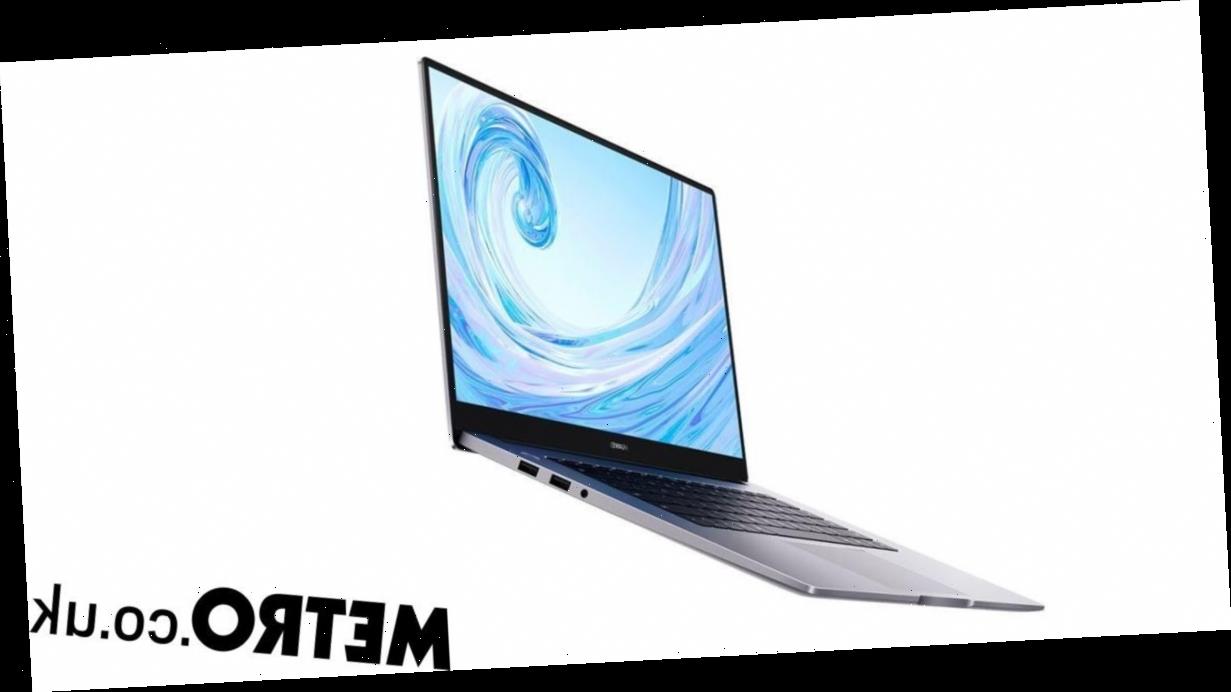No matter what your thoughts are on Huawei as a Chinese corporate entity, I’m here to tell you the hardware it creates is very good indeed.
In the past I’ve been enamored with the Mate 20 Pro smartphone but for the last week I’ve been using the newly-refreshed Matebook D laptop for work and play.
The laptop is a step down from Huawei’s top-tier Matebook X in both price and performance, but if you’re not looking to break the bank on a new laptop the Matebook D could well be a good option for you.
It comes with a choice of either a 14-inch or 15.5-inch display and I’m reviewing the 14-inch model which costs £649. The larger version will cost a bit less at £599 but no matter which screen you go for, the specs are similar. They include an AMD Ryzen 5 mobile processor, an AMD Radeon Vega 8 GPU and 8GB of RAM memory.
What impresses about this laptop is the screen and the weight. The 14-inch version packs a 1,920 x 1,080 IPS (in-plane switching which gives it better viewing angles) display with minuscule 4.8mm bezels. In total, it weighs 1.38kg and is only 15.9mm thick.
Yes, the inevitable comparisons to Apple’s Macbook line are present and correct – it’s no secret where the Chinese company picked up its industrial design ideas. The Matebook has a slightly darker hue to it than Apple’s machines, which is difficult to see in the pictures. It also feels a bit more squared off and less rounded in terms of appearance.
So, it looks pretty decent and it’s light and portable. So far, so good. But how about performance?
The Ryzen 5 is aimed at mid-range performance and that’s easily how I’d classify this machine: mid-range.
That’s not necessarily a bad thing. I don’t use my laptops for extreme video editing nor do I play video games on them. The closest I get to pushing the machines is through some pretty heavy browser usage. For example, I’ll usually have more than 15 tabs open at any one time with some running real-time analytics while another is streaming music. Invariably, I’ll be writing or spreadsheet editing at the same time and flipping between windows and tabs quickly. For this kind of work, the Matebook D is able to keep up without a hitch.
I really appreciated the physical dimensions and being able to slip the Matebook D in and out of a bag on the train without any problems. Ideally I prefer 13-inch screens but because of the thin bezels on this laptop I felt I was getting a good deal in terms of screen real estate. If I’m being picky, it would be great to see Huawei shave a bit of weight off – maybe aim more towards getting it at or under 1kg.
Battery life is a key factor for laptops these days and the Matebook D is competent without being outstanding. Huawei ships the device with a 65W USB-C charger in the box that will – Huawei says – juice the Matebook D up to 46% charge in 30 minutes. It’ll also serve as a fast charger for your phone if needed. If you do use a Huawei phone, then you can tap it to the Matebook D chassis and activate ‘Huawei Share’ which works like Apple’s AirDrop to instantly transfer files between devices.
During my time with the Matebook D, I managed to get about eight-and-a-half hours of use from it on a single charge. That’s based on the workflow mentioned above – although I made sure the brightness was switched all the way up and few Bluetooth accessories were paired just to make it a bit of a tougher test.
A few small features to mention – there’s a fingerprint scanner on the right hand side which lets you quickly unlock the device. It works well, but if you’re used to something like Windows Hello you may find it a bit annoying to have to keep using your fingerprint. Speaking of Windows Hello, the webcam on the Matebook D is recessed into the keyboard. You have to press the button and it pops up, which is great for privacy but unfortunately means during web conferences your colleagues may get a particularly flattering view of the underside of your chin.
But using the keyboard is a pretty comfortable experience – and I say that as someone who types a lot. There’s not a huge degree of travel, nor is there a backlight, but they keys are well spaced and smooth to touch.
Another plus point is the ports on the side of the Matebook D. You’re given two USB A ports, a USB-C port that doubles as the charging port and an HDMI port for outputting to an external display. There’s also a 3.5mm headphone jack for those that don’t fancy going wireless.
Overall, I came away from my time with the Matebook D quite impressed. It suited my demands well and also wouldn’t cost me over a thousand pounds if I wanted to buy one.
Naturally, there are probably going to be some concerns over Huawei’s current political position. Although the company has had its smartphones castrated by the the US trade ban, there’s no such limit on the laptop. The Matebook D runs Windows 10 and has access to all the apps and programs you could wish to use. Whether that changes in the future remains to be seen.
If you’re a gamer, photographer or programmer wanting to output to multiple displays or run professional-grade software, you’re going to find this device lacking. But for the vast majority of us, the Matebook D is a solid mid-ranger.
Source: Read Full Article

